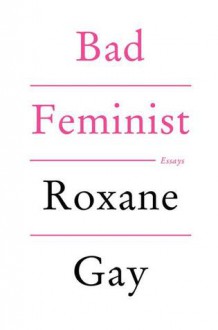
Tom Laurel, a failing artist, Ray Styles, a wealthy eccentric, and the exotic Soledad Paz all keep their dark secrets well hidden. When the three of them are irresistibly pulled into a volatile love triangle, their pasts and secrets start to show themselves, and the aftermath could be painful.

Bad Feminist is an anthology of witty and confessional essays mixing personal experience; opinions on race, politics, media, gender and sexuality; and reviews of books, TV and film – sometimes all in the same essay. Roxane Gay lays out what it is to be a feminist. That there’s no such thing as a ‘perfect’ one. Being human precludes us from perfection. We’re complex creatures. We can enjoy something even if we don’t agree with the ideas behind them. That’s the very definition of cognitive dissonance.
Panellists: Kate Elliott, Mary Anne Mohanraj, Rochita Loenen-Ruiz, Mahvesh Murad, John Hornor Jacobs, Marieke Nijkamp (vice president of We Need Diverse Books)
From Earthsea to Noughts and Crosses, The Summer Princeto Akata Witch, children and teens need to see books with characters that represent the diverse world they live in, whether they are dystopian romance or fantasy adventure. Organisations like We Need Diverse Books are helping to promote diversity in children’s literature, but what actions can we take – as readers, writers, publishers, and book-buyers – to help them in their goals? And who are the great authors of the past few years we should be catching up on?
Panellists: Kate Heartfield, Kate Elliott, Jed Hartman, Julia Rios,JY Yang
The “Bechdel test” for female representation in films is now widely known. To pass it a film should contain two named female characters who have a conversation about something other than a man. In recent years, similar tests have been proposed for other under-represented groups, including the Mako Mori test for characters of colour, and the Russo test for queer characters. What are the strengths and weaknesses of such tests? How do they affect our viewing choices? And what does the popularity of such tests say about how popular media are being received and discussed?